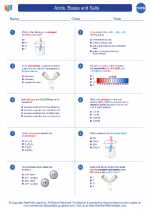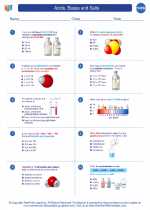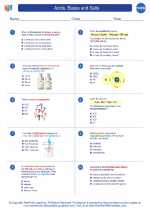Cellular Organization
Cellular organization refers to the arrangement of cells in a structured and functional manner within an organism. The organization of cells into tissues, organs, and organ systems is critical for the proper functioning of multicellular organisms.
Levels of Cellular Organization
- Cells: The basic unit of life, cells are the smallest structural and functional unit of an organism. They carry out essential processes such as metabolism, growth, and reproduction.
- Tissues: Groups of similar cells that work together to perform a specific function. There are four main types of tissues in the human body: epithelial, connective, muscle, and nervous tissue.
- Organs: Comprised of multiple tissue types, organs are structures that carry out specialized functions. Examples include the heart, lungs, and liver.
- Organ Systems: Groups of organs that work together to perform specific functions essential for the survival of the organism. Examples include the digestive system, respiratory system, and circulatory system.
- Organism: The highest level of organization, representing the complete individual organism composed of various organ systems.
Importance of Cellular Organization
The hierarchical organization of cells into tissues, organs, and organ systems enables the specialization of different cell types to carry out specific functions. This division of labor allows for greater efficiency and complexity in multicellular organisms, ultimately leading to their survival and reproduction.
Study Guide
When studying cellular organization, it's important to focus on understanding the following key concepts:
- The roles and functions of different cell types within tissues and organs.
- The relationship between structure and function at each level of cellular organization.
- The importance of cell communication and coordination in maintaining overall organismal function.
- How disruptions in cellular organization can lead to diseases and disorders.
Additionally, it's helpful to explore real-life examples of cellular organization in the human body and other organisms to appreciate the significance of this concept in biology.
By mastering the principles of cellular organization, students can gain a comprehensive understanding of the fundamental building blocks of life and the intricate organization of living systems.
.◂Chemistry Worksheets and Study Guides High School. Acids, Bases and Salts

 Worksheet/Answer key
Worksheet/Answer key
 Worksheet/Answer key
Worksheet/Answer key
 Vocabulary/Answer key
Vocabulary/Answer key
